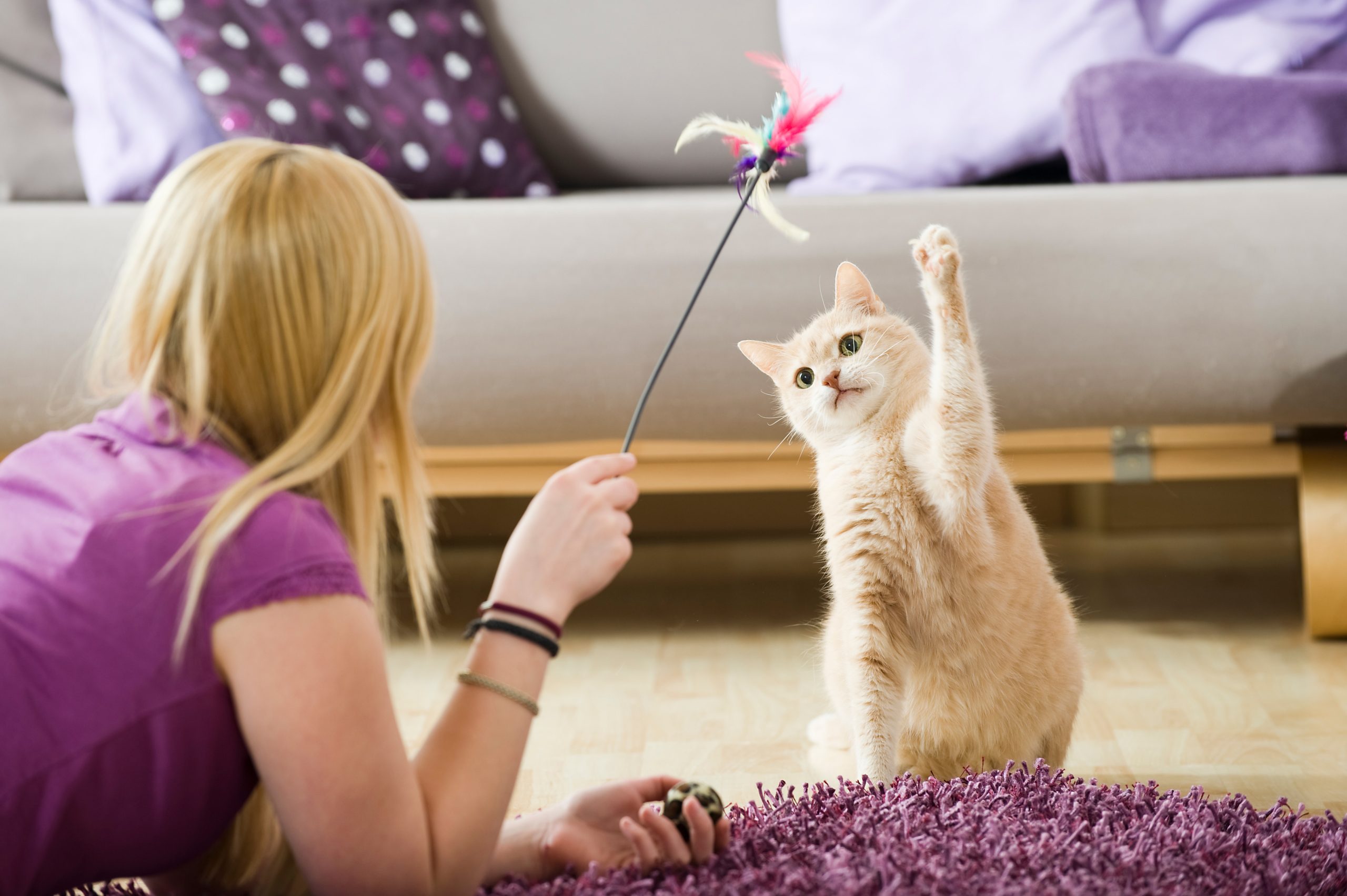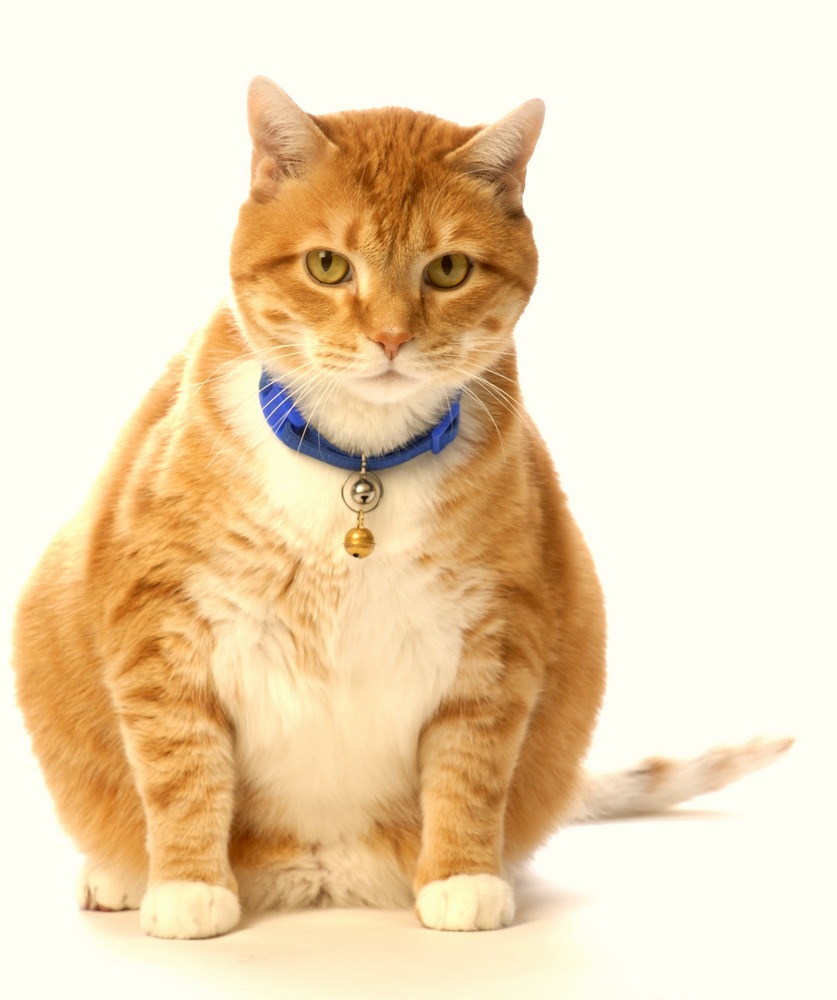-
Adopt
-
Veterinary Care
Services
Client Information
- What to Expect – Angell Boston
- Client Rights and Responsibilities
- Payments / Financial Assistance
- Pharmacy
- Client Policies
- Our Doctors
- Grief Support / Counseling
- Directions and Parking
- Helpful “How-to” Pet Care
Online Payments
Emergency: Boston
Emergency: Waltham
Poison Control Hotline
-
Programs & Resources
- Careers
-
Donate Now
 As your cat ages and starts to slow down, you, as their guardian, play a crucial role in their well-being in their senior years. Knowing when your cat enters their senior years is essential to providing proper care. Generally, cats are considered senior starting at 7 years old. At this stage, they may have different needs, requiring diet, environment, and healthcare adjustments to maintain their quality of life.
As your cat ages and starts to slow down, you, as their guardian, play a crucial role in their well-being in their senior years. Knowing when your cat enters their senior years is essential to providing proper care. Generally, cats are considered senior starting at 7 years old. At this stage, they may have different needs, requiring diet, environment, and healthcare adjustments to maintain their quality of life.
Create a Comfortable Living Space for Your Cat
 As your cat ages, making their home comfortable, accessible, and relaxing is essential. You can do this with some simple changes to your own living space. Start by placing food, water, and litter boxes in quiet, easy-to-reach areas. This helps reduce stress and makes life easier for your senior cat. Adding extra bowls of water can also encourage them to drink more. Creating a warm and cozy environment with soft sleeping spots, such as heated beds or blankets, can help your senior cat rest comfortably. (A note about heated cat beds: These beds have thermostats to maintain a consistent temperature when plugged in, which is around 10 to 15 degrees warmer than ambient room temperature. So, if your home is kept at 70 degrees, a plugged-in cat bed will reach 80 to 85 degrees, which won’t be warm when you touch it but will be toasty warm and perfect for your kitty.) If your cat has trouble jumping up to their favorite spots, consider using ramps or other helpful tools to make getting around safely easier. These little adjustments can make a big difference in your cat’s quality of life as they age.
As your cat ages, making their home comfortable, accessible, and relaxing is essential. You can do this with some simple changes to your own living space. Start by placing food, water, and litter boxes in quiet, easy-to-reach areas. This helps reduce stress and makes life easier for your senior cat. Adding extra bowls of water can also encourage them to drink more. Creating a warm and cozy environment with soft sleeping spots, such as heated beds or blankets, can help your senior cat rest comfortably. (A note about heated cat beds: These beds have thermostats to maintain a consistent temperature when plugged in, which is around 10 to 15 degrees warmer than ambient room temperature. So, if your home is kept at 70 degrees, a plugged-in cat bed will reach 80 to 85 degrees, which won’t be warm when you touch it but will be toasty warm and perfect for your kitty.) If your cat has trouble jumping up to their favorite spots, consider using ramps or other helpful tools to make getting around safely easier. These little adjustments can make a big difference in your cat’s quality of life as they age.
Keep Your Senior Cat’s Brain and Body Active
Older cats thrive when they stay mentally and physically active. It’s important to provide them with suitable toys, playtime, and gentle exercise. For instance, interactive toys that encourage movement and mental stimulation, such as feather wands or puzzle feeders, can be beneficial. Additionally, gentle exercises like climbing on low platforms or if your cat enjoys it, short walks on a leash can help keep your senior cat active and healthy.
For instance, interactive toys that encourage movement and mental stimulation, such as feather wands or puzzle feeders, can be beneficial. Additionally, gentle exercises like climbing on low platforms or if your cat enjoys it, short walks on a leash can help keep your senior cat active and healthy.
Spend quality time with your senior cat by gently playing with them and giving extra cuddles (if they’re into that) and pets, adjusting your bonding time to suit their energy levels. Also, keep in mind that the more a cat ages, the more their behavior may change, which might be a sign of cognitive issues. These changes include increased vocalization, altered sleeping patterns, or unusual behaviors. If you notice any of these signs, it’s a good idea to consult a veterinarian.
Regular Vet Visits: A Must for Senior Cats
 Cat guardians know our feline friends are experts at hiding if they feel sick. Spending quality time and closely monitoring your cat’s daily behavior can help you spot if anything is amiss. If you notice things like your cat vocalizing more than usual, seeming grumpy or confused, or having accidents in the house, don’t just chalk it up to getting older. These changes could point to health problems, so checking in with your veterinarian is a good idea.
Cat guardians know our feline friends are experts at hiding if they feel sick. Spending quality time and closely monitoring your cat’s daily behavior can help you spot if anything is amiss. If you notice things like your cat vocalizing more than usual, seeming grumpy or confused, or having accidents in the house, don’t just chalk it up to getting older. These changes could point to health problems, so checking in with your veterinarian is a good idea.
The top three health issues for senior cats are kidney disease, diabetes, and hypothyroidism. While there are no surefire ways to prevent these, you can reduce your cat’s risk.
Kidney Disease
Symptoms: Early signs of kidney disease in cats, such as weight loss and poor coat quality, can be mistaken for aging, but as the disease progresses, cats produce more dilute urine and drink more to compensate, leading to a sudden worsening of symptoms.
Treatment: Many cats can be effectively managed with dietary changes, supplements, and additional treatments. Your veterinarian will collaborate with you to identify the most suitable treatment for your cat.
Prevention: Hydrate, hydrate, hydrate! (Of course, this is a lot easier said than done!) Still, encourage your cat to drink water as much as you can. Providing multiple water sources helps, away from high-traffic areas and their food bowl (and litter box). Wash their water bowl daily and encourage your cat to eat wet food. Any amount of additional moisture helps!
Diabetes
Symptoms: Increased thirst and appetite, weight loss (despite eating a lot), vomiting, increase in frequency and volume of urination, and urinating outside the litter box are all symptoms of .
Treatment: Low-carb diet, insulin therapy, and oral medications.
Prevention: Feed your cat a healthy, well-balanced diet, keep them active, and don’t forget regular wellness checks!
Hyperthyroidism
Symptoms: Weight loss despite having a ravenous appetite, increased thirst and urination, and an unkempt appearance (matted or greasy hair).
Treatment: Anti-thyroid medications, surgical removal of the thyroid gland, limiting the amount of iodine in the diet, and radioactive iodine (I-131) therapy. The MSPCA-Angell’s specially trained , a treatment that destroys tumor cells in the thyroid while sparing normal thyroid cells, often eliminating the need for daily thyroid medication in most cats. In contrast to medications and surgery, I-131 therapy offers a cure for hyperthyroidism in cats with a 95 %to 98% success rate. Additionally, it eliminates the need to administer lifelong medication.
Prevention: There are currently no known preventive measures for , but early diagnosis (i.e., regular wellness checks) decreases the secondary problems and improves the prognosis.
As mentioned above, regular vet visits become even more critical as cats age. It’s helpful to keep track of any health changes, and your vet might suggest scheduling more visits to catch potential problems early. While a yearly check-up is important, senior cats might need to visit the vet twice a year or even more often if they already have health issues. Your vet can also run some tests during those visits to spot any hidden problems before you see any obvious signs. Plus, checking their blood pressure can be an excellent way to catch issues since high blood pressure is common in older cats and can be linked to other health concerns. The General Medicine services at the MSPCA-Angell Boston and MSPCA-Angell West and offer routine veterinary wellness exams to help senior cats stay happy and healthy.
Recognizing Pain and Discomfort in Senior Cats
Cats can experience pain from dental issues and arthritis without showing obvious signs. They tend to hide their discomfort, making it hard to notice when something’s wrong. If your cat has trouble grooming themselves, changes their eating habits, or behaves strangely around their mouth, they might be dealing with dental pain.
obvious signs. They tend to hide their discomfort, making it hard to notice when something’s wrong. If your cat has trouble grooming themselves, changes their eating habits, or behaves strangely around their mouth, they might be dealing with dental pain.
Arthritis can make moving around difficult for your cat, leading to hesitance in jumping, limping, or difficulty with stairs.
To help your cat feel more comfortable, talk to your veterinarian about joint supplements and pain relief options. You can also make reaching their favorite spots easier by using ramps or creating smaller jumps.
Tracking Your Cat’s Drinking and Bowel Habits
If you notice that your cat is drinking more or less water than usual, or if their urination changes, it could be a sign of health issues like kidney disease or diabetes. It’s a good idea to weigh your cat regularly to keep track of their health. Also, pay attention to their bathroom habits; changes in how often they go or how their poop looks can mean it’s time to change their diet or check in with a vet. Keeping an eye on these things can help you catch any problems early.
their urination changes, it could be a sign of health issues like kidney disease or diabetes. It’s a good idea to weigh your cat regularly to keep track of their health. Also, pay attention to their bathroom habits; changes in how often they go or how their poop looks can mean it’s time to change their diet or check in with a vet. Keeping an eye on these things can help you catch any problems early.
Tailoring Your Cat’s Diet and Monitoring Weight
As cats get older, they often need different diets to stay healthy. It’s important to monitor their weight to avoid problems like obesity or other health concerns. Choosing a food specifically made for senior cats can be a  good idea. Keeping your cat healthy is important because being overweight can lead to heart and joint issues. On the other hand, if your cat suddenly loses weight, it could indicate something is wrong.
good idea. Keeping your cat healthy is important because being overweight can lead to heart and joint issues. On the other hand, if your cat suddenly loses weight, it could indicate something is wrong.
To help your cat stay mobile and comfortable, talk to your vet about supplements for joint health or ways to manage any pain they might have. Limiting extra treats and being careful about how much food they get is also a good idea. You want to make sure they eat the proper nutrients without overeating.
x
Caring for a senior cat may require more attention, but the companionship and joy they bring to your life are incredibly rewarding. By staying observant and working closely with your veterinarian, you can support their comfort and quality of life, ensuring they age gracefully and happily by your side!




